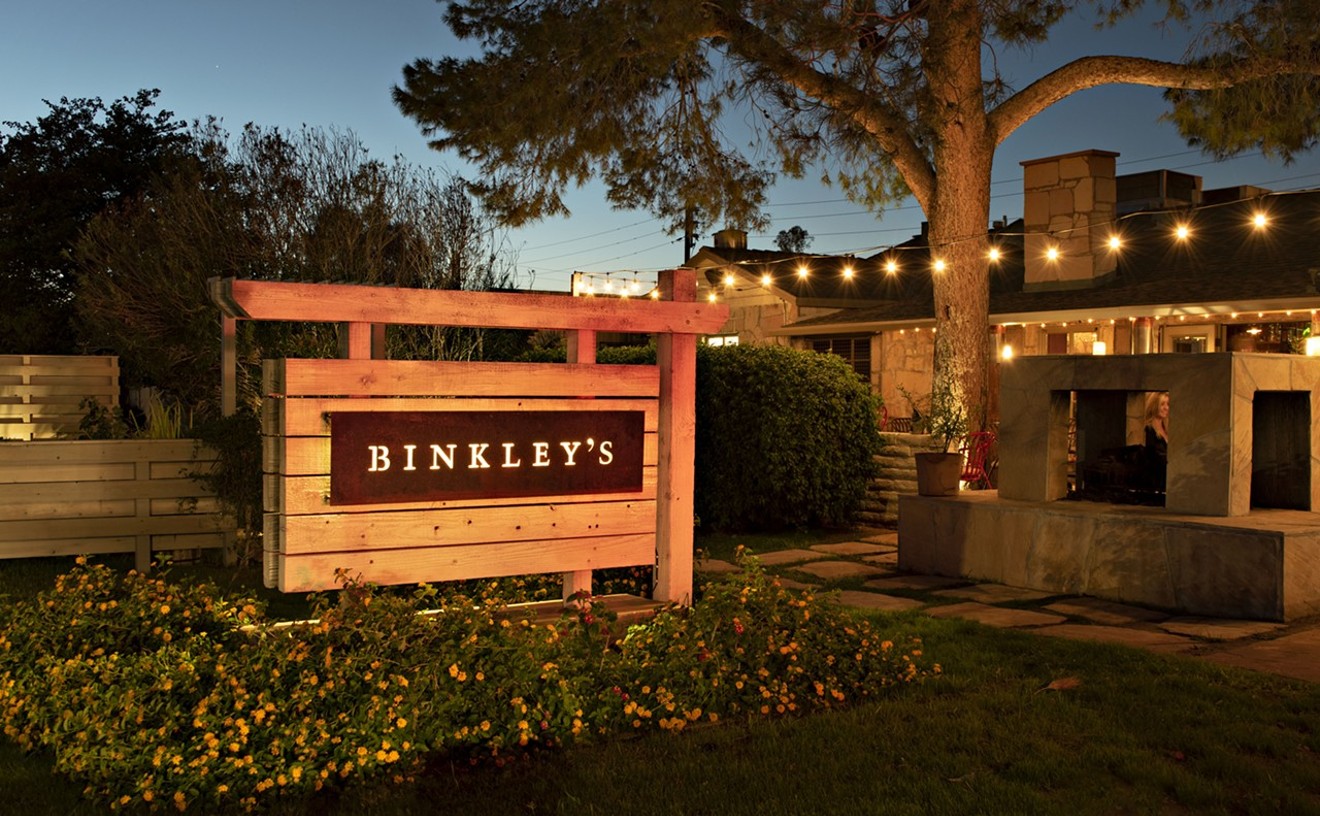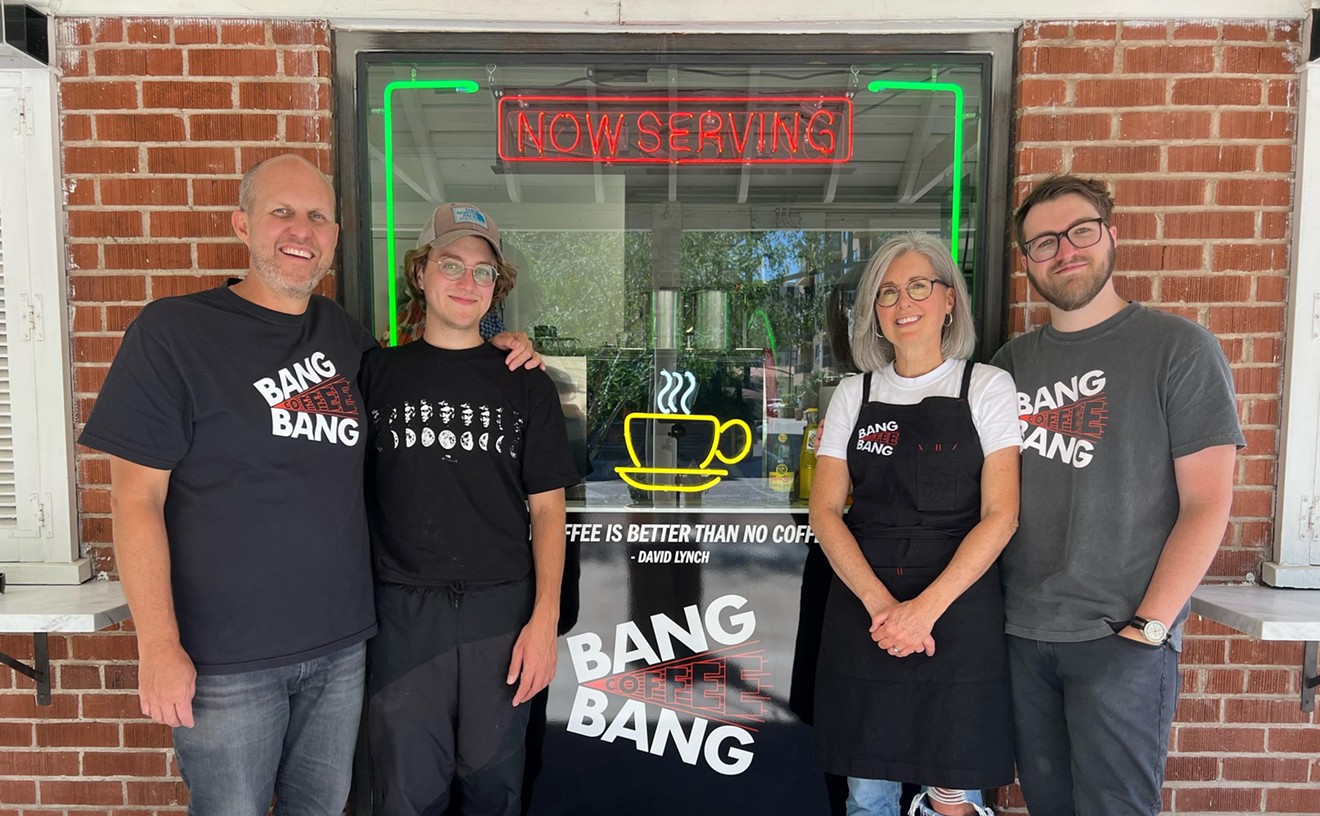Editor's Note: this post has been updated to reflect a new committee meeting date.
Four Peaks Brewing Co. and its owner, Andy Ingram, have a problem: The brewery is successful.
It's not an uncommon issue among the country's top producers of craft beer, though a trivial one in states like California, Oregon and Colorado, where brewers are able to expand almost unimpeded. But in Arizona, success -- and the growth that comes with it -- can cripple you.
See also: Chow Bella's 10 Best Beers of 2014
The authors of Arizona's current legislation governing craft breweries, wise as they were, included a set of nifty little exemptions in the law meant to protect and promote brewery growth. These exceptions enable breweries to self-distribute their own beer up to a point, and to own and operate as many tasting rooms, restaurants and other retail spots as they see fit.
But the exceptions only apply to a brewery producing fewer than 40,000 barrels -- or 80,000 kegs -- of beer each year. Once any one of a brewery's locations gets across that threshold, the brewer gets a Series 1 license, labeling it an "in-state producer" that can make an unlimited amount of beer.
That would be fine and dandy, except the sage architects of the law forgot to include what happens to a brewery's restaurants and tasting rooms after it crosses the 40,000-barrel mark. Are they required to shut down? Would all the bartenders, servers and cooks at a brewery restaurant arrive at work one day to the doors locked up with government chains?
To avoid this unknown outcome, Four Peaks has until now simply worked around the legislation. When he began closing in on the dreaded barrelage cap, Ingram opened his brewery's Wilson Street location in late 2012.
But buying a new brewhouse every time you get close to the 40,000-barrel limit is, according to Arizona Craft Brewers Guild Director Rob Fullmer, "a very expensive way to make beer."
"That's literally the government legislating the way beer is produced," he says.
Fullmer also finds issue with the current law's implied requirement that a brewery surrender its retail establishments upon crossing an arbitrary threshold. "The locations breweries build is part of their product," he says. "A brewery is not just its beers; it's the locations as well." So late last year the Brewers Guild teamed up with the Beer and Wine Distributors of Arizona to propose SB 1030, also known as the Arizona Beer Bill. Sponsored by Senator Kelli Ward of Lake Havasu, the bill would allow the state's craft breweries to grow beyond the 40,000-barrel limit without forfeiting retail licenses or giving employees the boot. Craft brewers making fewer than 40,000 barrels would be limited to a total of seven retail licenses (the current limit is infinity), and those producing more than 40,000 barrels wouldn't be able to add any more retail spots than the ones they owned when the limit was crossed.
An elegant solution, no? The eleven beer distributors and more than 60 brewers in Arizona who've signed on in support of the bill think so. Not all agree.
"This whole issue is about one mega-brewery, not 70 microbreweries. That one brewery has used all these special advantages to grow, and now they want to keep those advantages once they've gotten big," says Barrett Marson, a spokesman for the Arizona Wine and Spirits Wholesale Association, a group of three wine and liquor distributors that comprises the sole opposition to the Arizona Beer Bill. The "mega-brewery" he's referring to is Four Peaks -- a brewery that, it should be noted, currently produces about 70,000 barrels of beer per year, which doesn't even put it in the top 50 craft breweries in terms of sales volume.
Marson continues, "We salute the success they've had. What we don't want them to do is to grow so big as to squeeze out the smaller microbreweries."
In previous statements, the AWSWA has cited concerns about how the bill would affect the integrity of the three-tier system, a set of nationally mandated laws separating brewers from beer distributors and retailers. Their argument is that the bill as proposed would eliminate any sort of cap on a brewery's production. The "specialness" of microbreweries, Marson says, would be eliminated.
In response to the proposed legislation, AWSWA has submitted a bill of its own that enables breweries to open an unlimited number of restaurants and bumps up the annual production cap to the neighborhood of 150,000 barrels. But other aspects of their bill, according to Ingram, would make the law even more punitive than it currently is.
"Their bill is so ham-handedly written, it seems like they're just trying to get legislators confused," Ingram says. "If their bill passes, it will set craft beer in Arizona back 25 years."
Marson maintains that Four Peaks is trying to change the system for their benefit. "At some point, you have to decide whether you're going to be a producer or a retailer," he says. "They have to decide if they want to be a big boy, or if they want to stay special."
Special? Consider for a moment that Four Peaks and another brewery out of state, Stone Brewing Co., were founded the same year: 1996. Allowed to flourish under California's surprisingly lax brewery regulations, Stone grew to become the largest brewery in Southern California, the tenth-largest craft brewer in the country by sales volume and the 18th-largest brewery overall. Their beer is sold in more than 40 states and seven different countries. Next year they're opening a brewery in Berlin.
Four Peaks' beer has never been sold outside Arizona.
The reason behind this could be that it was never in Ingram's plan to be an international powerhouse. It could be that Arizona's drinkers simply don't support craft beer at the level of people in Escondido, San Diego and the rest of Southern California. More likely, however, it's because Arizona's laws made it impossible for Four Peaks' owners to plan and build capital for the future, or because they've had to tiptoe around laws that may or may not force them to close two successful restaurants, putting hundreds of people out of work.
How successful could Four Peaks have been if they were allowed to operate under the same conditions set for breweries in other states?
If the bill passes, Ingram says, we'll soon see.
"The very first thing I'll do is write a check to my equipment supplier and buy four new fermenters," he says. "Then maybe we'll begin talking about going out of state.
UPDATE: The Arizona Beer Bill is scheduled to be presented to the Arizona State Senate Commerce and Workforce Development Committee in early February. If you want to help it pass, sign the petition in support of the bill, or contact your local senator and ask them to support it -- or not, if you disagree.
Zach Fowle is a BJCP-recognized beer judge and a Certified Cicerone. He works at World of Beer in Tempe.










